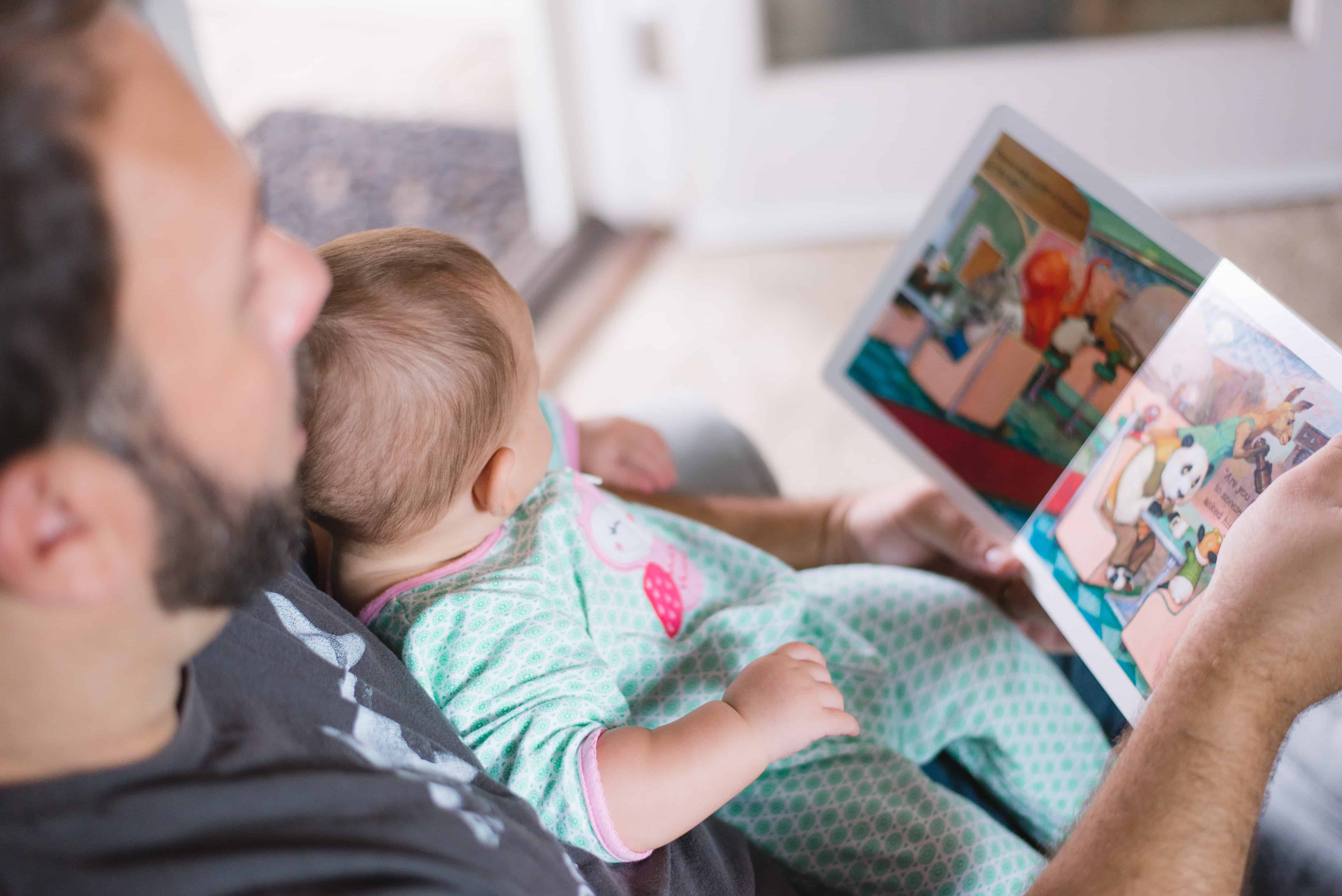Understandably, when going through a divorce or separation, one of the main concerns for parents is to ensure that the divorce has as little impact on their children as possible.
However, some parents find it challenging to agree on the arrangements for their children. This can often be resolved through conversation. If it cannot, a child arrangements order can iron out the finer details and ensure the child's best interests are covered.
Our guide below aims to answer the questions concerned parents most frequently ask us.
What is a child arrangement order?
A child arrangement order is an order that specifies where a child should live and/or the amount of time they should spend with another named person, such as a parent or other relative. The arrangements set out in the order will be based on the circumstances of the individual child's best interests and family situation and so there is no “one size fits all”.
Child arrangement orders tend to be used by the child's parents as part of the separation process; however, they are also used by other people.
In what circumstances do I need a child arrangement order?
The circumstances surrounding a child arrangements order vary depending on each individual family and situation.
To make the arrangements clear and legally binding, some people enter into a child arrangement order by agreement, called a consent order. However, an order is usually applied for where arrangements cannot be agreed, or a person has encountered issues with previously agreed arrangements not being complied with.
Who can apply for a child arrangement order?
Anyone with parental responsibility can apply for a child arrangement order. This can include:
- A parent, guardian or special guardian.
- A step-parent or another person who has parental responsibility for the child by way of a parental responsibility order or agreement.
- Anyone who has a 'live with' child arrangements order in their favour already.
- Any person who has parental responsibility by being named in a child arrangement order for the child to have contact/spend time with them.
The following other people can also apply:
- A person who has the consent of everyone who has parental responsibility for the child, or everyone who has a 'live with' order in their favour.
- Any person in a marriage or civil partnership where the child is a child of the family.
- If the child is in local authority care, a person who has the authority's consent.
- A foster parent or other relative, if the child has lived with them for one year immediately before making the application.
- Anyone who the child has lived with for a period of three years.
Anyone who falls outside of the above will require the permission of the court to apply. This includes extended family members such as grandparents, uncles and aunts if none of the above apply to them.
How long is the arrangement order valid for?
An order for a child to live with a person lasts until the child turns 18. An order for a child to spend time with a person lasts until the child turns 16. The Court will not make an order for a 16 or 17 year old to live with a person unless exceptional circumstances apply.
Who decides where the child spends their time?
Parents should try and decide arrangements between themselves in the first instance. If this is not possible, the court will make the decision if asked to.
Who decides the best interests of the child, on what grounds?
If the child's parents cannot reach an agreement either one of them can apply to the Court. The court will have to decide what is in the child's best interests and will consider certain factors known as the welfare checklist:
- The ascertainable wishes and feelings of the child (in light of their age and understanding)
- The child's physical, emotional and educational needs
- The likely effect on the child of any change in circumstances
- The child's age, sex and background and any other characteristics the court considers relevant
- Any harm the child has suffered or is at risk of suffering
- How capable the child's parents (or other relevant person) is of meeting their needs
- The range of powers available to the court
Does the child get a say in who they live with?
This depends on the child's age, so generally, the older they are, the more weight will be given to their wishes and feelings, but this isn't the only factor the court will consider.
Which court deals with child arrangement orders?
An application should be made to the court most local to the child who will be subject to the application. For example, for a child residing in the Warwickshire area, the local court would be Coventry.
What are the types of child arrangement orders?
A child arrangements order sets out who the child should live with and/or spend time with. However, there are two other types of order the Court can make which sometimes get confused with a child arrangements order. These are a prohibited steps order and specific issue order.
Do I need a prohibited steps order?
This is very specific and depends entirely on your situation. If you think you may need an order because another person with parental responsibility intends to do something against your wishes, you should seek specialist advice as soon as possible.
How do I stop a prohibited steps order?
If an order is made without giving you notice, you will need to apply to the court to vary or discharge it. If an application is made on notice to you, you will have the opportunity of opposing this at a hearing.
I don't want my child's surname changing. Can I stop it?
The consent of each person with parental responsibility is required to change a child's name. If you oppose a request to change your child's name, the person seeking the change will have to apply to the court for an order permitting them to make the change.
Prohibited steps order vs child arrangement order?
A child arrangement order deals with who the child shall live with and spend time with and when. A prohibited steps order is an injunctive order to stop a person from carrying out a specific action.
Specific issue order
The other type of order is a specific issue order, which, as the name suggests, is an order to determine a specific question or issue that has arisen in relation to a child’s upbringing, which the parties cannot agree upon. This could include decisions around taking a child abroad or the medical treatment of a child.
The process
How to get a child arrangements order?
To apply for an order, the first step is to attend a Mediation Information & Assessment Meeting or MIAM. These services can now be carried out remotely or face to face. The sessions are run by a qualified mediator who will assess if mediation is an appropriate way for the parties to try and reach an agreement. If there has been domestic abuse, child abuse, or the situation is very urgent, then you may not need to attend a MIAM.
It is always better for an agreement to be reached outside of Court proceedings, however in some cases, mediation doesn't work or is deemed inappropriate during the MIAM process.
An application, whether for a child arrangements order, specific issue order or prohibited steps order should be made using application form C100.
How long does it take to get an arrangement?
If both parties have reached an agreement without going to Court and a consent order is entered into, it could take as little as 1-2 months to obtain the Court’s approval to the proposed order.
If an agreement can't be reached and court proceedings are required, these generally take 3-6 months, unless there are complex issues that could lead to the process taking longer.
Where do you send the child arrangement order application?
Once you are ready to submit your application, it will need to be sent to the court most local to the child who will be the subject of the application.
What is the C100 form? Do I need one?
The C100 form is used to apply for an order under section 8 of the Children Act 1989 to make arrangements for a child or resolve a dispute about their upbringing. You can use the C100 form to apply for a child arrangements order, prohibited steps order or specific issue order.
Can we use mediation, or do we have to go to court?
You do not have to go to court and can choose to use mediation instead. In most cases, you will need to attend a Mediation Information and Assessment Meeting (MIAM) before you make an application to the court.
What are the costs for a child arrangement order?
This depends on what the application relates to and the complexity of a case. The court fee for issuing an application is currently £232.
As a rough guide, a relatively straightforward case that does not require a contested final hearing could cost in the region of £2,500 - £5,000 plus VAT.
Does legal aid apply for child arrangements?
It may be possible to obtain legal aid if you have specific evidence of domestic abuse and/or child abuse and you are on benefits or a low income.
The hearing
What happens at a child arrangement order hearing?
A hearing for a child arrangement order can either be administrative, where the Court considers what evidence is required to progress a matter and if any agreements can be reached at that stage or used by the court to determine the application.
What is a CAFCASS Officer?
CAFCASS is the Children and Family Court Advisory and Support Service. A CAFCASS officer is also known as a Family Court Adviser. They are specialist social workers who offer advice to the family court in child arrangements proceedings.
What is an interim child arrangement order?
An interim order can be made pending the court making a final decision. This temporary order is put in place for many reasons, however the court is often reluctant to do this if CAFCASS haven’t provided safeguarding information.
Do I need to gather witnesses?
This may not be required, but if the court has to determine factual disputes, it may be helpful for you to ask people who can support your version of events to act as witnesses.
If one parent is lying, what can the other do?
If you believe the other parent of the child is lying or making allegations, you will need evidence to back up these assertions. This is an area where specialist legal advice is extremely helpful.
What is the final hearing?
This hearing is where the court will decide what, if any, orders should be made.
In England and Wales, there is no limit on the number of hearings that can happen in a child arrangement case and the case will move to a final hearing when the Court feels it has enough information to make a decision.
Final hearings can be dealt with on submissions only, where parties will put their case to the Court, or evidence, whether witnesses will be called and questioned in front of the Court and submissions are then made.
Can you appeal a child arrangement order?
You can appeal a child arrangement order, but only if the order is not made by consent. There are important time limits for appealing, so it is vital to act quickly if you are considering appealing a decision.
What if one parent doesn't stick to the arrangements?
If one parent doesn't stick to the arrangements, you may be able to apply to the court to enforce the order. The court will consider the seriousness and frequency of the parent breaching the order before it decides to issue an enforcement order.
Why do the courts appear to always side with the mother?
There are many cases where children live with their father. If the child has always lived with a particular parent as their main carer, the other would need to be able to show there is a good reason to change this arrangement.
Can the police get involved?
Unless there is a risk to a child's safety, the police will unlikely get involved in breaches of child arrangements orders. You will need to make an application to the court to enforce the order and/or vary it, depending on the circumstances of your case.
What is a warning notice?
The final child arrangement order will attach a warning notice. The warning notice sets out the consequences of breaching the order. When one parent breaches the child arrangements order, the other can make an application to the court to enforce the order.
How are child arrangement orders enforced?
If the court is satisfied that a parent breached the child arrangement order, it has the power to enforce the order using various methods, including unpaid work requirements and financial compensation for any financial loss the applicant has suffered due to the other parent’s non-compliance.
The Court can also consider varying the original order or referring the parties to a separated parents information programme or mediation.
The Court can also attach a penal notice to a child arrangements order, which means if a party were to breach it the other could apply for a committal order, which is an order to send them to prison for being in contempt of court.
Why are mothers never punished for breaches?
This isn't entirely true, but each case is determined on its own facts.
How to vary child arrangement order?
If both parties agree, you can vary the arrangements set out in the order without needing to do anything formal. However, if you cannot agree, or one parent wants to change the order, and the other doesn't, you will need to apply to vary the order using a c100 application.
Rights of others
What rights do the extended family have?
There is no presumption that extended family should be involved in a child's life, as is the case with parents. However, the court does recognise the importance of children having relationships with their extended family.
Child arrangement order for grandparents
Grandparents do not have an automatic right to make an application for a child arrangements order. They will need to obtain the permission of the court first.
Child arrangement order for step-parent – do they have any rights?
If the step-parent has parental responsibility for the child or the child is considered a child of the family, they can make an application without needing the court's permission.
If one parent dies, does their family still have a right to see the child?)
There is no automatic right. Any person wanting to spend time with the child should, in the first instance, approach the person who has become the primary carer of the child.
Do I have to use a solicitor?
You don't have to use a solicitor, but if you choose not to take legal advice, you will not benefit from specialist legal knowledge and advice to guide you through the process.









